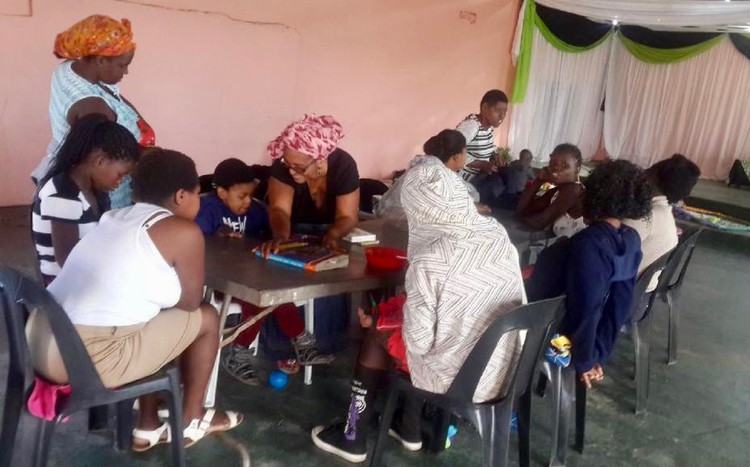Women create refuge for abused people living with disability
“In one house a child was tied to a fridge”
Five women in Hillcrest, west of Durban, have created a refuge to care for 57 children and women who are living with disabilities. Many of them have been or are abused at home.
Sibongile Ncube and four other women formed the Born Again Community Centre in 2016. The people they care for are aged between seven and 46. They meet Monday to Friday. Ncube says the centre was registered in February 2017.
The refuge is struggling to access funding. It is in a church. It has chairs, six sponge mattresses and a few toys. The building is too small to accommodate everyone who comes.
Ncube has approached the Department of Health but no one from the department has responded. Ncube also approached Botha’s Hill clinic for help, and she went to the Department of Social Development to appeal for assistance.
“We have asked that the [local] clinic supply medication for us. We were asking for visits at least once a month. In some homes they [the people who come to the refuge] were not given their medication. If we had health officials coming to the centre, things would be better. There has been no positive response. We are still waiting,” says Ncube.
Spokesperson for the Department of Social Development, Ncumisa Ndelu, told GroundUp: “They have people with special needs who take treatment. Their matter should be attended by the Department of Health.”
The Department of Health asked for the contact details of the centre, but did not wish to comment.
“We survive by food donations for breakfast from Spar … For lunch I take food from my house,” says Ncube.
“It broke my heart to see some of these children on the street. They would be asking for sweets from strangers. I became worried. The five of us started by doing home visits. I didn’t know that Embo had so many people living with disabilities,” she says.
Some of the children have parents who are working. Others have families who don’t want children with disabilities or can’t cope. Some of the parents have asked that the children be taken permanently.
Philisiwe Bhengu, who works in the centre, was a community caregiver previously. “Most of the children were abused at home. In one house a child was tied to a fridge … The mother had to go to work. The only option she had was to leave the child chained to the fridge.”
“Some children were left with gogos who couldn’t take care of them. They didn’t bathe or feed them. We had to do something … We have a whole family where all of them are mentally disturbed,” says Bhengu.
Ncube used to be a professional family and marriage counsellor. She left her job to focus on the centre. “I understood the dangers they [children with disability] are exposed to,” she says.
“We have a 22-year old who was raped. The rape happened when she went to sell curtains. A man raped her and left her pregnant … She is mentally challenged. Every week she comes with her child to the centre,” says Ncube.
Ward councillor Themba Shelembe said he is proud of the initiative. “I have tried helping them to apply for a grant-in-aid [a goverment grant for people in severe crisis] at eThekwini municipality. We are hoping to be successful on that. As the leaders we should lend a hand where we can. These women are doing this out of love. They have saved a lot of people who have been neglected. They feel that they now have a home. The centre needs a bigger space.”
Support independent journalism
Donate using Payfast

Don't miss out on the latest news
We respect your privacy, and promise we won't spam you.
Next: Criminal justice system abused to stifle protest, says report
Previous: Commuters want September train tickets to be valid for two months
© 2018 GroundUp.
This article is licensed under a Creative Commons Attribution-NoDerivatives 4.0 International License.
You may republish this article, so long as you credit the authors and GroundUp, and do not change the text. Please include a link back to the original article.

